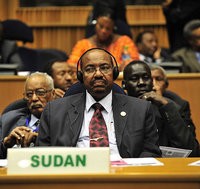On June 16, students at the University of Khartoum, the capital of Sudan, began protesting against austerity measures enacted by the government of President Omar al-Bashir. Now staging near-daily protests, the students, along with their fellow demonstrators, are calling for the fall of Bashir, who took power in a 1989 coup, and his National Congress Party (NCP). Sudanese security forces have responded forcefully to the protests, drawing international concern. Observers inside and outside Sudan, meanwhile, wonder whether the protests might force Bashir to step down. Whether or not Bashir endures these protests, their intensity demonstrates the unsustainability of the political and economic status quo in Sudan.
Sudan’s economic woes, a major driver of the protests, stem largely from the loss of South Sudan, which gained independence in July 2011. South Sudan produces approximately 75 percent of the oil once controlled by Sudan, but the pipeline and port infrastructure connecting the oil fields to the international market remains in Khartoum’s hands. Negotiations between the two states have failed to resolve their differences over the transit fees that Sudan wants to charge South Sudan for using its pipeline. In January, after Sudan began seizing some of South Sudan’s oil as payment, South Sudan halted its oil production. Lacking the transit fees it had expected to collect, the government in Khartoum faces a budgetary deficit of $2.4 billion.
The regime’s austerity measures include firing hundreds of government employees, slashing civil servants’ salaries, removing fuel subsidies, increasing prices for public transport and hiking taxes on consumer goods, banks and imports. The measures could exacerbate inflation, which rose steadily this spring and crossed the 30 percent mark in May. Food costs have soared, and daily life is becoming hard for millions of Sudanese. Austerity will make it even harder.

